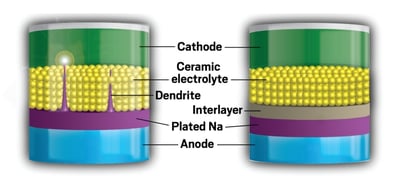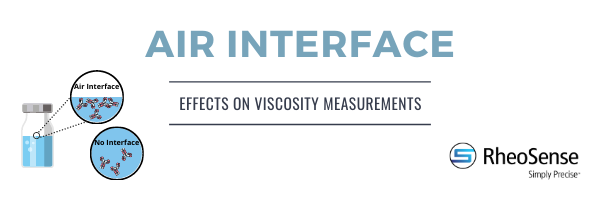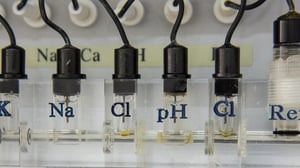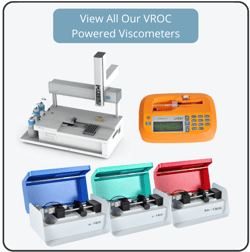An electrolyte is a medium containing ions that is electrically conducting through the movement of ions, but not conducting electrons. This includes most soluble salts, acids, and bases dissolved in a polar solvent, such as water. Electrolyte solutions are common in a broad range of applications including batteries and protein or antibody formulations. It is often desirable to distinguish these low viscosity fluids as a quality control measure, to predict performance, or for use in a calculation such as intrinsic viscosity.

The Jones–Dole equation is an empirical expression that describes the relationship between the viscosity of a solution and the concentration of solute within the solution (at a fixed temperature and pressure).
η is the viscosity of the solution (at a fixed temperature and pressure),
η0 is the viscosity of the solvent at the same temperature and pressure,
A is a coefficient that describes the impact of charge–charge interactions on the viscosity of a solution (it is usually positive) and can be calculated from Debye–Hückel theory,
B is a coefficient that characterizes the solute–solvent interactions at a defined temperature and pressure,
C is the solute concentration.
When measuring electrolyte solutions, Jones-Dole B-coefficient can be extracted from the concentration dependent viscosity data to more clearly quantify the ion-solvent interactions.
Lithium-ion battery electrolyte solutions are typically composed of a binary mixture of cyclic carbonates, e.g., ethylene carbonate (EC), and linear carbonates, e.g., dimethyl carbonate (DMC) or ethyl methyl carbonate (EMC). The performance of lithium-ion batteries is dependent on the solvent dielectric constant as well as viscosity. Download our application note where we probe the viscosity of battery solutions as a function of temperature and calculate the activation energy from Arrhenius fits to the viscosity vs. temperature results.
There are significant challenges in measuring the viscosity of solvents and electrolytes with traditional viscometers and rheometers. Many electrolyte solvents are very low in viscosity (1 mPa-s). Measuring low viscosity liquids with high accuracy and repeatability can be difficult and small differences in the absolute viscosity significantly affect ion mobility. Most electrolyte solvents are volatile, even when the boiling point is relatively high. Volatility makes it both difficult and unsafe to measure viscosity at temperatures that are close to boiling point. Some of salts found in electrolyte solutions are very reactive to water. Due to this high reactivity, a trace amount of water can be detrimental to performance and affects the accuracy of the measurement. For these reasons, measuring the viscosity in fully enclosed environment becomes a necessity.
 Learn more about air-liquid interface
Learn more about air-liquid interface
Most traditional viscometers and rheometer technologies cannot address these challenges since they present a large air-liquid interface - causing readings to be impacted. RheoSense viscometers are powered by a patented VROC® (Viscometer-Rheometer-on-a-Chip) technology, combining microfluidic and MEMS (Micro-Electro-Mechanical Systems) technologies to measure small sample volume dynamic viscosity over a wide dynamic range of operation free of air-interface problem. VROC® viscometers are enclosed instruments and VROC® chips (formally listed in USP chapter <914> as rectangular slit) are fully enclosed in their own chip housing, preventing fluid-air interface from impacting your measurements. VROC high resolution and fully contained design make it ideal for the accurate design and development of electrolyte solutions.
Written by: Eden Reid, RheoSense Senior Marketing and Sales Operations




